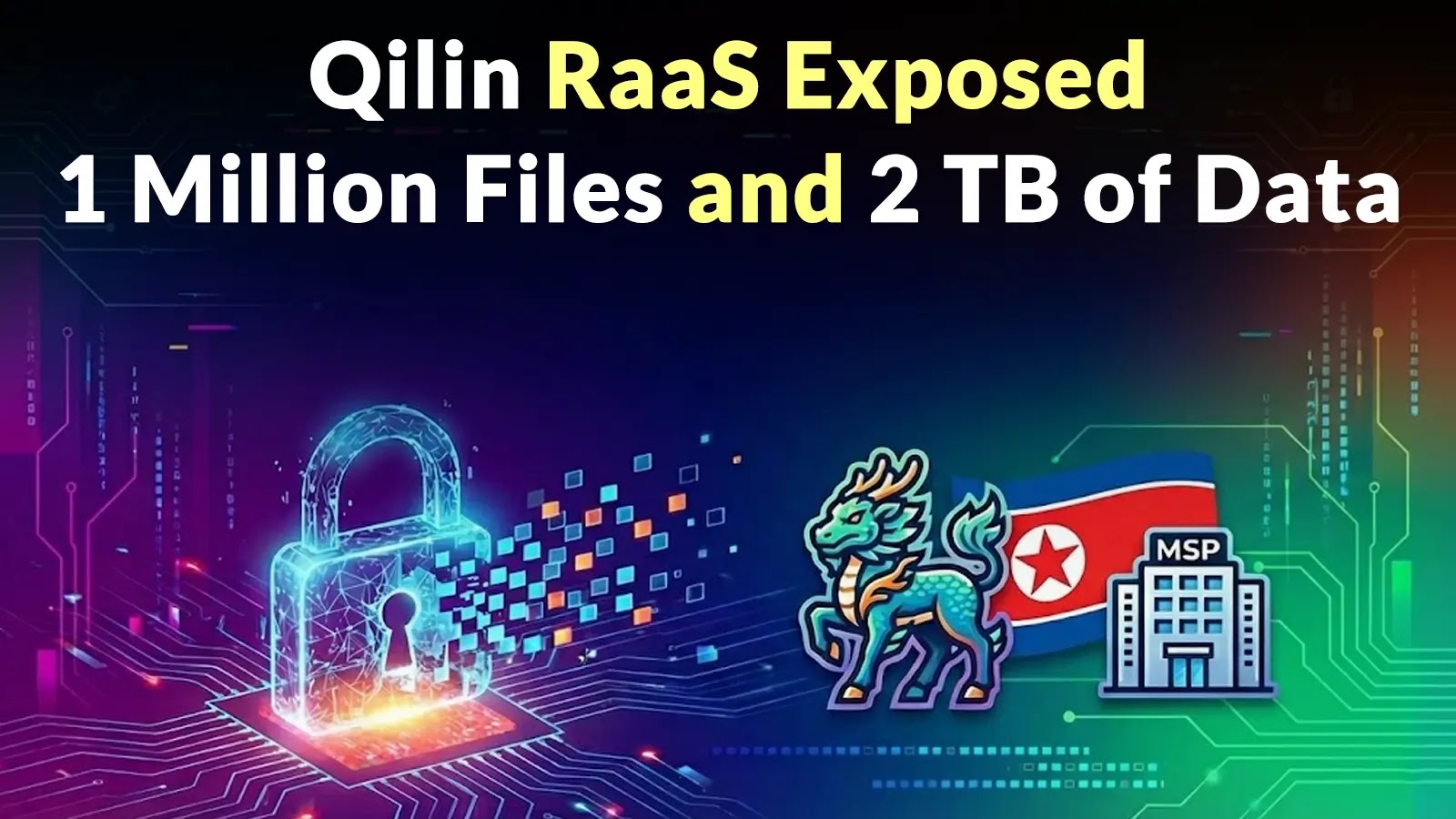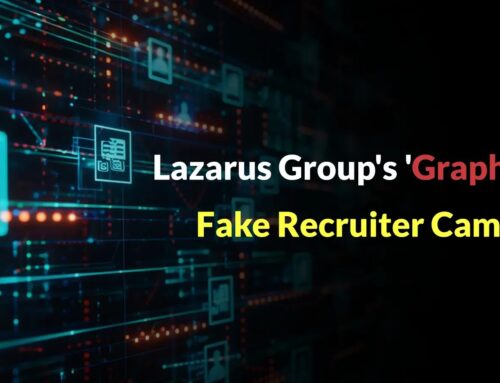
Qilin RaaS Exposed 1 Million Files and 2 TB of Data Linked to Korean MSP Breach
Unmasking the Qilin RaaS Threat: The Korean Leaks Campaign and MSP Breaches
The digital landscape is a constant battleground, and recent events highlight the critical vulnerabilities within supply chains. A sophisticated campaign, dubbed “Korean Leaks,” has exposed a stark reality: even robust financial sectors can be brought to their knees by a blend of advanced ransomware and strategic targeting. This operation, potentially fueled by the notorious Qilin Ransomware-as-a-Service (RaaS) group and whispers of North Korean state-affiliated actors like Moonstone Sleet, has thrust the vital role of Managed Service Providers (MSPs) into the cybersecurity spotlight. The fallout? A staggering exposure of 1 million files and 2 TB of sensitive data, underscoring the cascading impact of a single compromised entity.
The Anatomy of the Attack: Qilin RaaS and Supply Chain Exploitation
The “Korean Leaks” campaign demonstrates a chilling evolution in cyber warfare. Rather than direct assaults on primary targets, attackers are increasingly leveraging the trust and interconnectedness within supply chains. In this instance, a compromised Managed Service Provider became the conduit for a far-reaching breach. MSPs, by their very nature, possess privileged access to numerous client networks, making them exceptionally attractive targets for threat actors seeking maximum impact with minimal initial effort.
The Qilin RaaS model further amplifies this threat. Ransomware-as-a-Service democratizes sophisticated cyberattacks, offering a ready-made toolkit for affiliates to deploy. This lowers the barrier to entry for less technically adept groups while enabling well-resourced actors to scale their operations. The suspected involvement of Moonstone Sleet, a group linked to North Korean state interests, adds another layer of concern, suggesting a convergence of financial motivation and geopolitical objectives.
The Scale of the Breach: 1 Million Files, 2 TB of Data
The sheer volume of data compromised – 1 million files and 2 terabytes – is a stark reminder of the potential consequences when an MSP’s defenses are breached. This isn’t just about financial loss; it’s about the erosion of trust, the exposure of sensitive customer information, and the potential for long-term reputational damage. The nature of the exposed files, though not explicitly detailed in the source, likely includes a wide array of confidential business documents, personal information, and proprietary data from various South Korean financial institutions and their clients.
- Impact on Financial Sector: Disruptions to services, potential regulatory penalties, and significant financial remediation costs.
- Customer Data Compromise: Risk of identity theft, fraud, and legal repercussions from affected individuals.
- Reputational Damage: Long-term impairment of trust for both the compromised MSP and its clients.
The Moonstone Sleet Connection: State-Sponsored Cybercrime?
The mention of Moonstone Sleet is critical. This group has been associated with North Korean state-affiliated activities, suggesting that the “Korean Leaks” campaign might be more than just a financially motivated ransomware attack. State-sponsored actors often have broader objectives, including intelligence gathering, economic disruption, and the funding of illicit regimes. Their involvement elevates the threat level significantly, bringing with it advanced persistent threat (APT) capabilities and a potential disregard for traditional cybercrime boundaries.
Remediation Actions and Proactive Defense for MSPs and Their Clients
The “Korean Leaks” campaign serves as a critical wake-up call for MSPs and their clients worldwide. Proactive measures are paramount to mitigate the risk of similar breaches.
- Robust Access Control: Implement strict Multi-Factor Authentication (MFA) for ALL privileged accounts, including those used by MSP personnel and for remote access. Regularly review and revoke unnecessary access permissions.
- Network Segmentation: Isolate critical systems and sensitive data from less secure parts of the network. This limits the lateral movement of attackers even if an initial breach occurs.
- Endpoint Detection and Response (EDR): Deploy EDR solutions across all endpoints to detect and respond to suspicious activities in real-time.
- Vulnerability Management: Conduct regular vulnerability assessments and penetration testing. Promptly patch known vulnerabilities, especially those frequently exploited by ransomware groups (e.g., Log4j, Microsoft Exchange Proxylogon).
- Incident Response Plan: Develop, test, and regularly update a comprehensive incident response plan. Ensure all stakeholders understand their roles and responsibilities during a breach.
- Data Backup and Recovery: Implement immutable, off-site backups for all critical data. Test recovery procedures regularly to ensure data can be restored quickly and effectively.
- Supply Chain Security Audits: Clients should conduct thorough security audits of their MSPs, and MSPs should impose strict security requirements on their own upstream vendors.
- Security Awareness Training: Continuously train employees on phishing, social engineering, and the importance of reporting suspicious activities.
Mitigation and Detection Tools
Several tools can aid in detecting and mitigating the threats posed by ransomware and supply chain attacks:
| Tool Name | Purpose | Link |
|---|---|---|
| CrowdStrike Falcon | Endpoint Detection and Response (EDR), threat intelligence | https://www.crowdstrike.com/ |
| Tenable Nessus | Vulnerability Scanning and Management | https://www.tenable.com/products/nessus |
| Splunk Enterprise Security | SIEM, Security Analytics, Incident Response | https://www.splunk.com/en_us/software/splunk-enterprise-security.html |
| Veeam Backup & Replication | Data Backup, Recovery, and Ransomware Protection | https://www.veeam.com/ |
| Cofense PhishMe | Security Awareness Training, Simulated Phishing | https://cofense.com/product-services/phishme-simulated-phishing/ |
Key Takeaways from the Korean Leaks Campaign
The “Korean Leaks” campaign, facilitated by Qilin RaaS and potentially state-sponsored actors, underscores several critical lessons. First, the supply chain remains a prime target for sophisticated adversaries. Second, the impact of an MSP breach can be catastrophic, affecting numerous downstream clients. Finally, robust cybersecurity defenses, including stringent access controls, vigilant patching, and comprehensive incident response planning, are not optional but essential for survival in the current threat landscape. Organizations must assume breach and build resilient systems capable of detecting, containing, and recovering from attacks swiftly.





